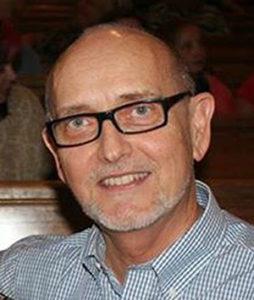|
OPINION: Preaching on #metoo and #churchtoo
By Doyle Sager
In August of 2017 I made a commitment to preach a series of sermons on rape, abuse and assault. Little did I know that two months later the #metoo movement would explode all over social media as women courageously stepped forward to tell their stories. In the months leading up to the sermon series, I grew more nervous. What if this approach is too much? Not enough? What if the sermons trigger unanticipated responses? But gut-wrenching personal stories and pervasive data persuaded me to stay the course. One in every four girls will be sexually abused or assaulted by the age of 17. Sixty-three percent of all rapes go unreported. Estimating the size of my congregation, I did the math. My pastoral instincts told me that the issues needed to be addressed, and that words like sexual abuse, sexual assault, rape, bullying, domestic violence and harassment needed to be spoken from our pulpit (in later feedback, this proved to be among the most liberating and helpful things). To prepare the congregation, we sent letters to the parents of all children, birth through high school, explaining the upcoming worship emphasis and its rationale. We also provided parents a resource list of books, online sites and state and national hotline numbers, encouraging them to read ahead and to have conversations with their families. This same resource list was available on our church’s webpage and in our lobby throughout the sermon series. As an added layer of support, we enlisted several ordained clergy who are members of our church, all trained in clinical pastoral work and with years of experience, to be in the lobby during the most difficult sermon which recounted the rape of Tamar in 2 Samuel 13. I announced that if anyone became uncomfortable during worship, counselors were in the lobby, available to listen and offer support. The sermons, preached on three Sundays in May, explored the tragic sexual abuses of King David and his family. Sermon one, focusing on David’s adultery with Bathsheba, addressed bullying, harassment and domestic abuse. Let’s be clear. Anytime a power differential exists between people, the sexual act is abusive. Bathsheba was not King David’s equal – politically, socially or legally. This was not a sexual tryst between two consenting adults of equal status. David held all the power and privilege. What the King wanted, the King took. But wait, wasn’t David known as a man after God’s own heart? Yes, but I reminded the congregation: People are never just one thing. And sometimes, the abuser/rapist/controller is the nicest person in the neighborhood – or in the palace.
As I mentioned earlier, sermon two based on Amnon’s rape of his half-sister Tamar, was by far the most difficult to preach. All the familiar elements are there. After he raped her, Amnon predictably used shame and blame to make himself the victim. Neither Tamar’s brother Absalom nor her father David lifted a hand to help her. She was all alone, with no one to hear her story and no one to whisper in her ear, “This wasn’t your fault.” Sermon three addressed society’s conspiracy of silence regarding sexual misconduct. Like a cancer, the poison from the unaddressed sexual sins of David’s court grew and grew. No one spoke a word about Tamar’s rape. But that didn’t make it go away. The King discovered what we all do sooner or later: keeping family secrets can be deadly. Finally, in a rage, Absalom killed his rapist-half-brother Amnon. Eventually, civil war broke out and hundreds, perhaps thousands, died. All of this reminds us that our lies, cover-ups, excuses and foot-dragging do not make the national blight of sexual misconduct go away. Unaddressed sexual sins are our nation’s unpaid bills and the interest continues to compound in deadly ways. Not surprising, the #metoo movement has prompted the #churchtoo movement. I am so thankful that the Cooperative Baptist Fellowship has taken steps to address these issues. Baptist Women in Ministry and CBF have produced and compiled resources to assist congregations in dealing with clergy sexual misconduct. Several years ago, Churchnet (the Baptist General Convention of Missouri) set aside funds to assist victims of sexual assault, especially church-related cases. A number of ministry colleagues who also contribute opinion articles to Baptist News Global have offered helpful perspectives on sexual abuse and how churches can respond. Our congregation’s response to the worship emphasis has been encouraging. People have quietly come forward to tell me their stories. Judith Herman, author of Trauma and Recovery: The Aftermath of Violence, writes that rape and assault victims all need three things: (1) safety, (2) space to remember and mourn and (3) reconnection with life. What a coincidence. These three also sum up what the church is called to offer a hurting world.
|
.
Any original material on these pages is copyright © BishopAccountability.org 2004. Reproduce freely with attribution.
